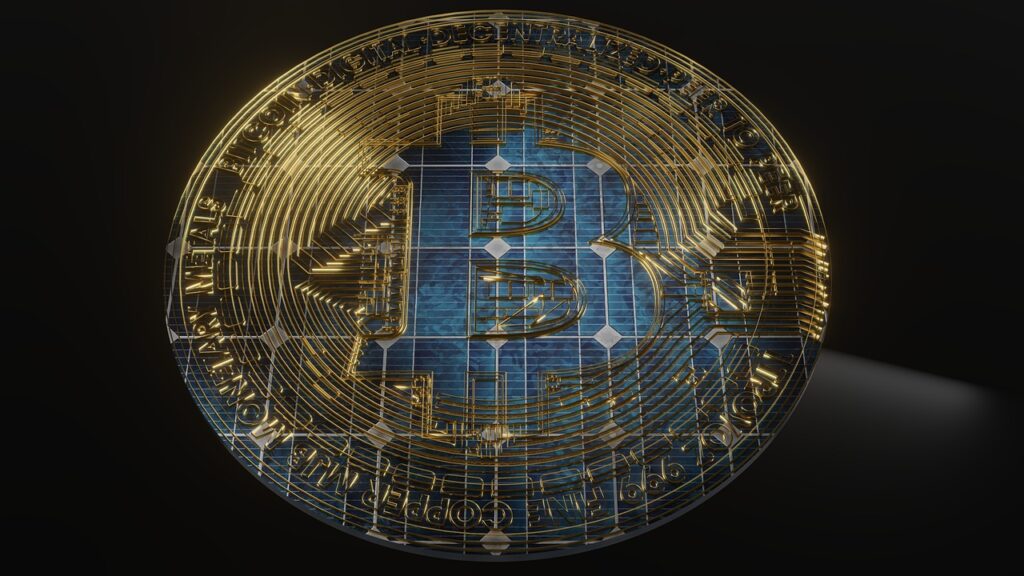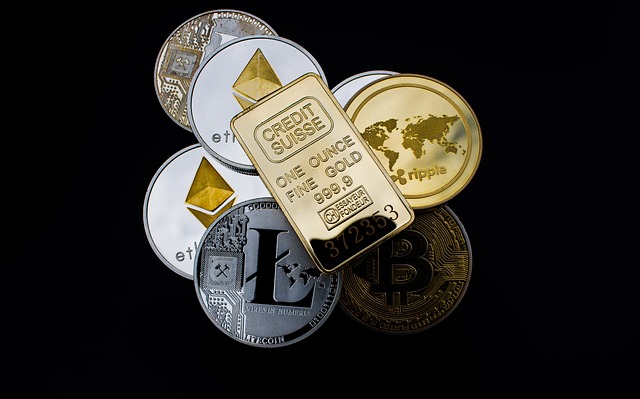The Future of Finance: Exploring DeFi Platforms
The Future of Finance: Exploring DeFi Platforms

Decentralized Finance: Revolutionizing the Financial Industry
Decentralized Finance, also known as DeFi, has garnered significant attention in recent years as it aims to revolutionize the financial industry. Unlike traditional centralized financial systems, DeFi platforms operate on blockchain technology, which eliminates the need for intermediaries such as banks and brokers. This decentralization brings forth a range of benefits, including increased accessibility, improved financial inclusivity, and enhanced transparency.
One of the biggest advantages of DeFi is its ability to provide financial services to individuals who may not have access to traditional banking systems. With DeFi platforms, anyone with an internet connection can participate in various financial activities, including lending, borrowing, and investing. This accessibility has the potential to empower individuals in underserved regions and bridge the gap between the banked and unbanked populations. Furthermore, DeFi platforms have the potential to reduce the entry barriers for individuals who want to participate in the global financial market, democratizing access to financial products and services.
Understanding DeFi Platforms: An Overview
DeFi, short for Decentralized Finance, has been making waves in the financial industry. In simple terms, DeFi platforms aim to revolutionize the way we engage with financial services by leveraging the power of blockchain technology. Unlike traditional financial systems that rely on intermediaries like banks, DeFi platforms operate in a decentralized manner, enabling peer-to-peer transactions and reducing the need for third-party involvement.
At the core of every DeFi platform is the concept of smart contracts. These self-executing contracts are coded on the blockchain, ensuring transparency and eliminating the need for trust between parties. By utilizing smart contracts, DeFi platforms enable users to access a wide range of financial services like lending, borrowing, trading, and investing, all in a secure and permissionless manner. In addition, DeFi platforms often provide users with the ability to earn passive income through various yield farming and liquidity mining strategies.
DeFi platforms offer several advantages over traditional financial systems. Firstly, they provide greater accessibility, allowing anyone with an internet connection to participate in financial activities without the need for a bank account. Secondly, DeFi platforms promote financial inclusivity by removing the need for credit checks and other traditional prerequisites, providing equal opportunities to individuals regardless of their background or location. Moreover, DeFi platforms offer improved financial privacy, as transactions on the blockchain are pseudonymous, unlike traditional systems where personal information is often required. Additionally, the decentralized nature of DeFi platforms minimizes the risk of censorship and government intervention, providing users with greater control over their financial activities.
The Advantages of DeFi: Breaking Down the Benefits
DeFi, short for Decentralized Finance, has been gaining immense popularity in recent years. One of the key advantages of DeFi is its ability to provide financial services to individuals who may not have access to traditional banking systems. This is especially beneficial for the unbanked population, who can now conveniently store and transact their funds using DeFi platforms. Additionally, DeFi eliminates the need for intermediaries such as banks, which can often be bureaucratic and time-consuming.

Another advantage of DeFi is its transparency and security. Traditional financial systems often lack transparency, making it difficult for individuals to understand the inner workings of their transactions. However, with DeFi platforms, all transactions are recorded on the blockchain, ensuring a high level of transparency. Moreover, the use of smart contracts in DeFi brings enhanced security by eliminating the possibility of fraud or manipulation. These contracts are programmed to execute automatically when certain conditions are met, minimizing the risk of human error or malicious activities.

Exploring the Different Types of DeFi Platforms
There are several different types of DeFi platforms that have emerged in recent years, each with its own unique features and functions. One of the most popular types is decentralized lending platforms. These platforms allow users to lend and borrow digital assets without the need for a traditional intermediary like a bank. Users can earn interest on their assets by lending them out, while borrowers can access funds without having to go through the lengthy and often complex process of obtaining a loan from a bank. This type of DeFi platform provides greater accessibility and flexibility for individuals and businesses looking to borrow or lend money.
Another type of DeFi platform is decentralized exchanges (DEXs). These platforms enable users to trade digital assets directly with one another, without the need for a centralized exchange. This eliminates the need for intermediaries and offers a more secure and transparent way to trade assets. With DEXs, users have full control over their funds and can trade anytime, anywhere. They also benefit from lower fees compared to traditional exchanges. This type of DeFi platform has gained significant traction in the crypto community and is seen as a major disruptor to the traditional financial system.
Key Features of DeFi Platforms: A Closer Look
When it comes to exploring the key features of DeFi platforms, it is essential to understand the decentralized nature of these systems. Unlike traditional financial institutions, DeFi platforms are built on blockchain technology, which eliminates the need for intermediaries in financial transactions. This means that users can send, receive, and store digital assets without relying on banks or other financial institutions. By removing the middleman, DeFi platforms offer greater autonomy and control over one’s finances.
Another important feature of DeFi platforms is its open and permissionless nature. Anyone with an internet connection can access and participate in DeFi protocols without the need for KYC (Know Your Customer) procedures or other identity-based restrictions. This inclusivity allows individuals from all around the world, including the unbanked population, to access financial services and opportunities that were once inaccessible to them. Additionally, the open-source nature of DeFi platforms enables developers to innovate and build on existing protocols, fostering a collaborative environment for continuous growth and improvement.
The Potential Risks of DeFi: What You Need to Know
DeFi platforms have taken the financial industry by storm with their promises of decentralized and transparent financial services. While they offer numerous benefits, it is crucial to understand and be aware of the potential risks associated with these platforms.
One of the primary risks of DeFi platforms is the threat of smart contract vulnerabilities. Smart contracts, which power many DeFi applications, are essentially self-executing contracts with the terms of the agreement directly written into code. If these contracts contain bugs or loopholes, they can be exploited by malicious actors, leading to significant financial losses for users. Additionally, the irreversible nature of transactions on the blockchain can exacerbate the impact of these vulnerabilities, as once funds are sent, they cannot be easily recovered. It is essential for users to thoroughly review and audit the smart contracts they interact with to minimize the risk of falling victim to such vulnerabilities.
Another risk to consider is the potential for systemic risk within the DeFi ecosystem. Since DeFi platforms are interconnected, coordinated attacks or a major security breach on one platform could have a domino effect on others, impacting the entire ecosystem. This interdependence poses a risk to the stability and overall functionality of DeFi platforms. Additionally, the lack of regulation in the DeFi space means that there may be limited recourse for users in the event of fraudulent activities or security breaches. Therefore, it is crucial for individuals and businesses to carefully assess the risks and consider diversifying their exposure to minimize potential losses.
How DeFi Platforms are Disrupting Traditional Banking Systems
The rise of decentralized finance (DeFi) platforms is gradually disrupting traditional banking systems. These innovative platforms offer a range of financial services that were previously only available through traditional banks, but with a twist. Instead of relying on centralized intermediaries like banks, DeFi platforms leverage blockchain technology and smart contracts to provide secure and transparent financial transactions.
One of the key ways that DeFi platforms are disrupting traditional banking systems is through the elimination of middlemen. In traditional banking, intermediaries such as banks or brokers play a central role in facilitating financial transactions. However, with DeFi platforms, these intermediaries are no longer necessary. Instead, individuals can directly interact with the platform, enabling peer-to-peer transactions and cutting out costly fees and delays associated with intermediaries. This not only streamlines the process but also reduces costs for users, making financial services more accessible to a wider range of individuals and businesses.

• DeFi platforms eliminate the need for middlemen such as banks or brokers
• Users can directly interact with the platform, enabling peer-to-peer transactions
• This cuts out costly fees and delays associated with intermediaries
• Streamlines the process and reduces costs for users
• Makes financial services more accessible to a wider range of individuals and businesses
• Enhances privacy and security for users by removing centralized databases that can be vulnerable to hacks or breaches
The Role of Smart Contracts in DeFi Platforms
Smart contracts play a crucial role in facilitating the seamless functioning of decentralized finance (DeFi) platforms. These self-executing contracts are built on blockchain technology, allowing for secure and automated transactions without the need for intermediaries. By doing so, smart contracts provide a level of transparency and efficiency that is unparalleled in traditional financial systems.
One of the key advantages of smart contracts in DeFi platforms is their ability to remove human error and bias from financial transactions. Because smart contracts are coded to execute predefined actions once certain conditions are met, the risk of human error or manipulation is significantly reduced. This not only enhances the trustworthiness of the transactions but also streamlines the entire process, saving both time and resources for users. Furthermore, the transparency of smart contracts enables users to easily verify the terms and conditions of a transaction, fostering a greater sense of trust in the DeFi ecosystem.
The Future of DeFi: Predictions and Possibilities
The future of DeFi is filled with exciting predictions and possibilities. As the popularity of decentralized finance continues to grow, many experts believe that it has the potential to revolutionize the entire financial industry. The possibilities for DeFi are vast, and we are only scratching the surface of what it can achieve.
One prediction for the future of DeFi is the mainstream adoption of decentralized applications (dApps). Currently, DeFi platforms are primarily being used by early adopters and tech-savvy individuals. However, as more user-friendly interfaces are developed and regulatory frameworks are established, we can expect to see a surge in the number of people using and benefiting from DeFi. This could lead to a greater democratization of financial services, where individuals have more control over their money and can access a wider range of financial products and services.
Another possibility for the future of DeFi is the integration with other emerging technologies such as artificial intelligence and the Internet of Things (IoT). By combining these technologies, we could see the development of autonomous financial systems that can execute transactions and manage assets without human intervention. This has the potential to increase efficiency, reduce costs, and eliminate the need for intermediaries in financial transactions. However, it also raises concerns about security and the potential for vulnerabilities in these automated systems.
The future of DeFi is promising, but it also presents some challenges and risks. As the industry continues to grow, it will be important to address issues such as regulation, scalability, and security. Additionally, education and awareness will play a crucial role in ensuring that individuals and businesses can fully embrace the potential of DeFi. Overall, the future of DeFi holds great promise, and it will be fascinating to see how it continues to evolve and shape the financial landscape.
Embracing DeFi: How Individuals and Businesses Can Get Involved
As decentralized finance (DeFi) continues to gain traction, individuals and businesses alike are increasingly seeking ways to embrace this revolutionary financial model. Fortunately, getting involved in DeFi doesn’t require complex processes or technical expertise. For individuals, the first step is to familiarize themselves with the basics of DeFi platforms, understanding their functionalities and advantages. This can be done by conducting research, following industry news, and engaging in online communities dedicated to DeFi discussions. Once a solid understanding is gained, individuals can then start exploring various DeFi platforms to determine which ones align with their financial goals and risk tolerance. Popular options include decentralized lending and borrowing platforms, decentralized exchanges, and yield farming platforms.
For businesses, the process of embracing DeFi can be equally straightforward. It starts with identifying areas within their existing operations that can benefit from the advantages offered by DeFi. For example, businesses can leverage decentralized lending platforms to access capital without relying on traditional banks or implement smart contracts for automated and secure transactions. Moreover, businesses can explore the possibility of integrating their products or services with existing DeFi platforms to tap into a rapidly growing user base. This can open up new revenue streams and provide enhanced value to customers. However, it is crucial for businesses to carefully evaluate the risks associated with DeFi and ensure they take appropriate measures to mitigate them, such as conducting thorough due diligence, implementing strong security protocols, and seeking expert guidance. By taking these steps, both individuals and businesses can actively embrace DeFi and participate in the ongoing revolution of the financial industry.
What is DeFi?
DeFi stands for Decentralized Finance, which refers to the use of blockchain technology and cryptocurrencies to recreate and improve financial systems.
How is DeFi revolutionizing the financial industry?
DeFi is revolutionizing the financial industry by offering decentralized and open financial platforms that provide services like lending, borrowing, and trading without the need for intermediaries like banks.
What are the advantages of DeFi?
DeFi offers benefits such as increased accessibility, transparency, and financial inclusion. It also provides users with more control over their funds and the opportunity to earn passive income.
What are some types of DeFi platforms?
Some types of DeFi platforms include decentralized exchanges (DEXs), lending platforms, stablecoins, and yield farming platforms.
What are the key features of DeFi platforms?
Key features of DeFi platforms include peer-to-peer transactions, smart contract automation, transparency, and open access to financial products and services.
Are there any risks associated with DeFi?
Yes, there are potential risks in DeFi, such as smart contract vulnerabilities, hacks, and market volatility. It’s important to do thorough research and exercise caution when participating in DeFi.
How are DeFi platforms disrupting traditional banking systems?
DeFi platforms eliminate the need for intermediaries like banks, enabling individuals to directly interact with financial services. This disintermediation challenges the traditional banking systems and their centralized control.
What role do smart contracts play in DeFi platforms?
Smart contracts are self-executing contracts with predefined rules, programmed on blockchain networks. In DeFi, smart contracts automate transactions and enforce agreements, removing the need for intermediaries and enhancing efficiency.
What does the future hold for DeFi?
The future of DeFi is promising, with the potential to reshape the financial landscape. It may lead to increased adoption, innovation, and integration with traditional finance, offering more opportunities for individuals and businesses.
How can individuals and businesses get involved in DeFi?
Individuals and businesses can get involved in DeFi by researching and understanding different platforms, setting up digital wallets, and participating in various DeFi activities like lending, borrowing, staking, and trading. It’s important to start small and learn gradually.
Todays Featured Product:
Buy, exchange and grow your crypto securely with a Ledger hardware wallet, combined with the Ledger Live app. It’s never been easier to keep your crypto safe and accessible. Buy direct from Ledger.com and get todays Special Offers Here.




